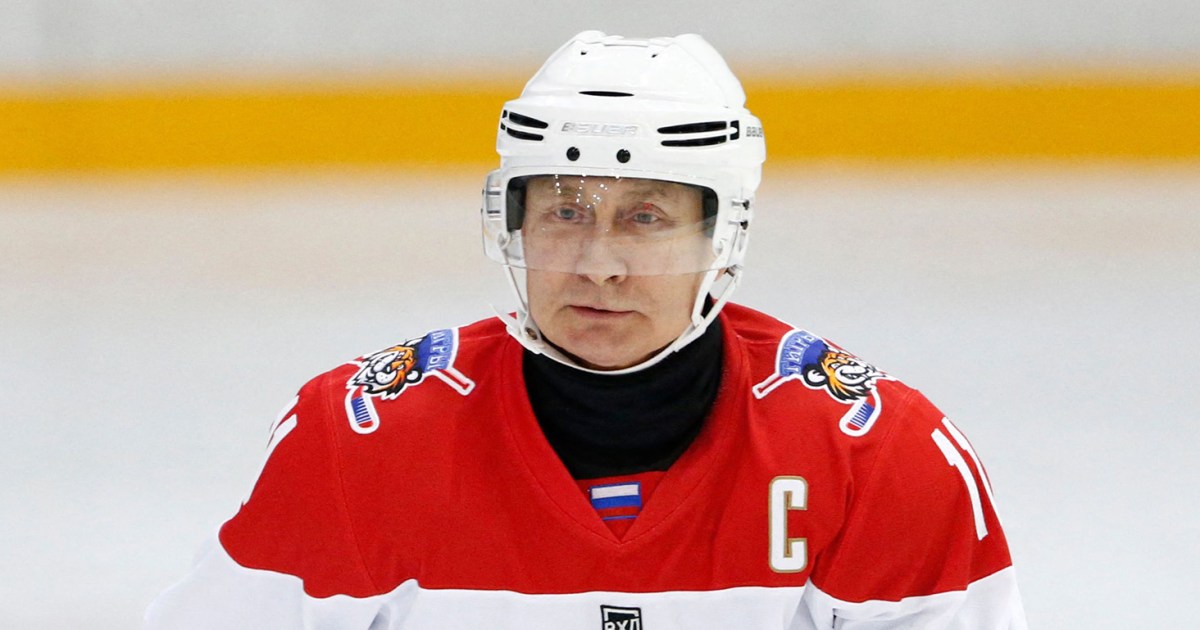Ice Diplomacy: Can Hockey Bridge the Divide Between Russia and the U.S.?
As tensions between Russia and the United States continue to simmer, an unlikely arena emerges for potential reconciliation: the hockey rink. Ice hockey, a sport deeply rooted in both nations’ cultures, offers more than just entertainment; it presents opportunities for diplomacy and dialogue. This article explores the concept of “Ice Diplomacy,” examining how hockey could serve as a conduit for thawing diplomatic relations between these two global powers.
The Historical Context of Sports Diplomacy
Sports diplomacy is not a new concept. From the ping-pong diplomacy of the 1970s that opened the door to U.S.-China relations to the famous “Hockey Summit” of 1972, where the Soviet Union and Canada faced off in a series of games that transcended mere athletics, history has shown that sports can play a significant role in international relations. Hockey, in particular, has long been a symbol of both competition and camaraderie.
In the context of U.S.-Russia relations, the historical backdrop is fraught with conflict. The Cold War era saw hockey become emblematic of the rivalry, with both nations vying for supremacy on and off the ice. Notably, the 1980 Winter Olympics, where the underdog U.S. team defeated the heavily favored Soviet squad, is often cited as a pivotal moment that stirred national pride and reflected broader geopolitical tensions.
Current Tensions: The Need for Dialogue
In recent years, relations between Russia and the U.S. have become increasingly strained, characterized by diplomatic spats, military posturing, and economic sanctions. The ongoing conflict in Ukraine, election interference allegations, and mutual accusations of espionage have only added fuel to the fire. In this atmosphere, traditional diplomatic channels often feel ineffective, leading to a growing sense of frustration on both sides.
However, as the saying goes, “It’s not what you say, it’s how you say it.” This is where ice diplomacy comes into play. By leveraging the universal appeal of hockey, both nations could find common ground. The sport fosters teamwork, resilience, and respect—qualities that are essential for diplomatic relations.
The Role of Hockey in Cultural Exchange
Hockey is more than a game; it’s a cultural phenomenon that resonates deeply within both Russia and the U.S. From the NHL’s popularity in North America to the KHL’s prominence in Russia, the love for the sport unites fans across borders. Therefore, organizing events that celebrate this shared passion could pave the way for dialogue.
- International Tournaments: Events like the World Championship or the Olympics can serve as platforms for interaction. Athletes, coaches, and officials from both nations can engage in discussions, fostering relationships beyond the rink.
- Exhibitions and Clinics: Hosting hockey clinics that bring together young players from both countries could help cultivate friendships and mutual respect among future generations.
- Media Collaborations: Joint broadcasts or documentaries showcasing the history of hockey in both nations can highlight commonalities, further reducing tensions.
Ice Diplomacy in Action: Success Stories
One notable example of ice diplomacy in action occurred in 2018 when the NHL and the KHL collaborated on a series of games featuring teams from both leagues. This initiative not only showcased the talent of players from each country but also demonstrated a willingness to work together despite political differences. The goodwill generated from such events can be instrumental in promoting understanding and cooperation.
Another illustration is the participation of Russian players in the NHL. Stars like Alex Ovechkin and Evgeni Malkin have become household names in the U.S., helping to humanize the image of Russia in the eyes of American fans. These athletes serve as cultural ambassadors, bridging the divide between nations through their sportsmanship and charisma.
The Challenges Ahead
While the notion of ice diplomacy is promising, it’s not without its challenges. Political leaders often prioritize national interests over cultural engagements, which can undermine grassroots efforts. Additionally, the influence of media narratives can shape public perception, sometimes fostering animosity rather than understanding.
Moreover, the complexities of international relations mean that sports alone cannot resolve deep-seated issues. However, they can serve as a starting point for dialogue, providing a less confrontational environment for discussing contentious topics.
Building a Future Through Ice Diplomacy
To capitalize on the potential of ice diplomacy, strategic actions are necessary:
- Government Support: Both nations’ governments should recognize the value of sports diplomacy and provide support for initiatives that foster cooperation.
- Engagement of NGOs: Non-governmental organizations can play a crucial role in organizing events and fostering exchanges that promote goodwill.
- Community Involvement: Grassroots movements can help build a foundation for long-term relationships, allowing ordinary citizens to connect and share experiences.
Conclusion: A Skate Toward Reconciliation
As the world becomes increasingly polarized, the role of sports in international relations cannot be underestimated. Ice diplomacy offers a unique opportunity for Russia and the U.S. to engage in meaningful dialogue through a shared love for hockey. While challenges remain, the ice rink could serve as a neutral ground, fostering understanding and collaboration.
In a world where political tensions often overshadow cultural connections, let’s not forget the power of sport to bring people together. If hockey can unite fans across borders, it just might help bridge the divide between nations, reminding us that sometimes, the best way to resolve conflict is not through words but through shared experiences on the ice.
See more BBC Express News

